Related Research Articles

Wellesley College is a private women's liberal arts college in Wellesley, Massachusetts. Founded in 1870 by Henry and Pauline Durant as a female seminary, it is a member of the Seven Sisters Colleges, an unofficial grouping of current and former women's colleges in the northeastern United States.
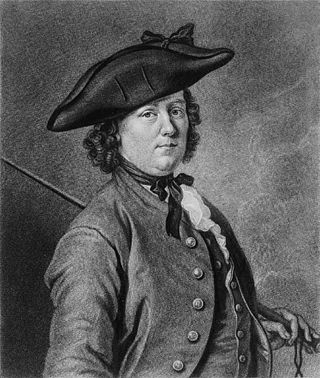
Hannah Snell was a British woman who disguised herself as a man and became a soldier.
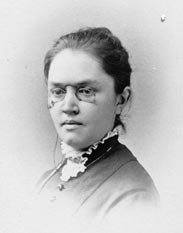
Katharine Lee Bates was an American author and poet, chiefly remembered for her anthem "America the Beautiful", but also for her many books and articles on social reform, on which she was a noted speaker.

Mary Anne Talbot also known as John Taylor was an Englishwoman who wore male dress and became a soldier and sailor during the French Revolutionary Wars.
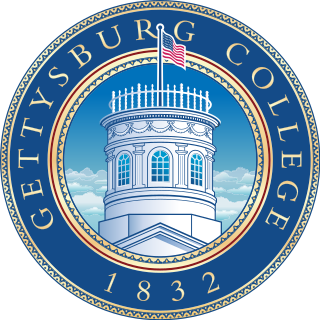
Gettysburg College is a private liberal arts college in Gettysburg, Pennsylvania. Founded in 1832, the 225-acre (91 ha) campus is adjacent to the Gettysburg Battlefield. Gettysburg College has about 2,600 students, with roughly equal numbers of men and women. Gettysburg students come from 41 states, Washington, D.C., and 39 countries.

Creighton University is a private research university in Omaha, Nebraska. Founded by the Society of Jesus in 1878, the university is accredited by the Higher Learning Commission. In 2015 the university enrolled 8,393 graduate and undergraduate students on a 140-acre (57 ha) campus just outside of downtown Omaha. It is classified among "R2: Doctoral Universities – High research activity". It comprises nine undergraduate, graduate, and professional schools and colleges, including a law school, medical school, dental school, pharmacy school, nursing school, and business school. The university operates the Creighton University Medical Center. It has a second campus focused on health sciences located in Phoenix, Arizona.
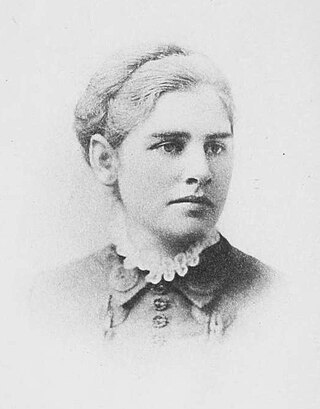
Katharine Ellis Coman was an American social activist and professor. She was based at the women-only Wellesley College, Massachusetts, where she created new courses in political economy, in line with her personal belief in social change. As dean, she established a new department of economics and sociology.
Joanne Vanish Creighton is an American academic who served as the 16th President of Mount Holyoke College in South Hadley, Massachusetts, from 1996 to 2010. On August 10, 2011, the Haverford College Board of Managers named her interim President of Haverford College, replacing Stephen G. Emerson, who resigned.

John F. Marszalek is an American historian who served as Executive Director and Managing Editor of the Ulysses S. Grant Association and The Papers of Ulysses S. Grant project from 2008 to 2022.

Gerda Hedwig Lerner was an Austrian-born American historian and woman's history author. In addition to her numerous scholarly publications, she wrote poetry, fiction, theatre pieces, screenplays, and an autobiography. She served as president of the Organization of American Historians from 1980 to 1981. In 1980, she was appointed Robinson Edwards Professor of History at the University of Wisconsin-Madison, where she taught until retiring in 1991.

Gabor S. Boritt is an American historian. He was the Robert Fluhrer Professor of Civil War Studies and Director of the Civil War Institute at Gettysburg College. Born and raised in Hungary, he participated as a teenager in the Hungarian Revolution of 1956 against the Soviet Union before escaping to America, where he received his higher education and became a scholar of Abraham Lincoln and the American Civil War. He is the author, co-author, or editor of 16 books about Lincoln or the War. Boritt received the National Humanities Medal in 2008 from President George W. Bush.

John Robert Greene is an American historian who was the Paul J. Schupf Professor, History and Humanities, the director of the History Program, co-director of the History/Social Science major, and the College Archivist, at Cazenovia College in Cazenovia, New York. Greene specializes in American history, with research and writing interests in the American presidency. He has edited or written twenty books, including works on Dwight D. Eisenhower, Richard Nixon, Gerald Ford, George H. W. Bush, and George W. Bush. He has also written several volumes on the history of higher education.
In the early colonial history of the United States, higher education was designed for men only. Since the 1800s, women's positions and opportunities in the educational sphere have increased. Since the late 1970s and early 1980s, women have surpassed men in number of bachelor's degrees and master's degrees conferred annually in the United States and women have continuously been the growing majority ever since, with men comprising a continuously lower minority in earning either degree. The same asymmetry has occurred with Doctorate degrees since 2005 with women being the continuously growing majority and men a continuously lower minority.
Lisa Norling is a U.S. historian noted for her pioneering work on gender and the sea. As such she is part of a new move in maritime historiography to examine gender, race and class in relation to seafaring labor, passengers and people in port cities.
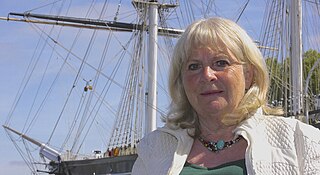
Jo Stanley FRHistS is a British-based author and creative historian who focuses on the gendered seas. Women and LGBT seafarers are among the hidden histories focused upon in her books, articles, exhibitions and conference papers, as well as plays and talks.
Elizabeth D. Leonard is an American historian and the John J. and Cornelia V. Gibson Professor of History at Colby College in Maine. Her areas of specialty include American women and the Civil War era.
Barbara Corrado Pope, professor emerita, is a novelist, historian, a former director of Clark Honors College at the University of Oregon, and the founding director of Women's and Gender Studies at Oregon.

Joseph McLean Hall Jr. is a professor, writer, and historian at Bates College in Lewiston, Maine where he specializes in early modern American and Atlantic history, particularly focusing on Native American, European, and environmental interactions in North America. He is a nationally recognized historian for his research in Native American history and in addition to his work in academia, he often writes articles that contribute to newspapers and gives presentations to public audiences. Hall is currently working on a book project concerning the Maine Coast and the Bates-Morse Mountain Conservation Area in collaboration with Bates faculty in the natural sciences. He is an associate professor at Bates in the History department and the Environmental Studies (ES) program, having recently chaired the ES program and multiple hiring committees for new ES faculty. He also received the 2009 Kroepsch Award for Excellence in Teaching and the honor of delivering the 2018 Convocation Address at Bates.

Keisha N. Blain is an American writer and scholar of American and African-American history. She is Professor of Africana Studies and History at Brown University. Blain served as president of the African American Intellectual History Society from 2017 to 2021. Blain is associated with the Charleston Syllabus social media movement.
Elizabeth Möser Thorn was an American cemetery caretaker who served as the caretaker of Evergreen Cemetery in Adams County, Pennsylvania, while her husband was serving in the Union Army. While pregnant, Thorn buried approximately one hundred soldiers who had died at the Battle of Gettysburg in 1863.
References
- ↑ MARGARET S. CREIGHTON. The Colors of Courage: Gettysburg's ... https://academic.oup.com/ahr/article/111/1/180/133575
- ↑ The Electrifying Fall of Rainbow City: Spectacle and Assassination (2016)...https://books.google.com/books?isbn=0393247511
- ↑ Creighton, Margaret S.; Norling, Lisa (1996). Iron Men, Wooden Women. Johns Hopkins University Press. ISBN 978-0-8018-5160-5.
- ↑ "Margaret S. Creighton | History | Bates College". www.bates.edu. Archived from the original on 2011-12-21.
- ↑ "Margaret S. Creighton | History | Bates College". www.bates.edu. Archived from the original on 2011-12-21.